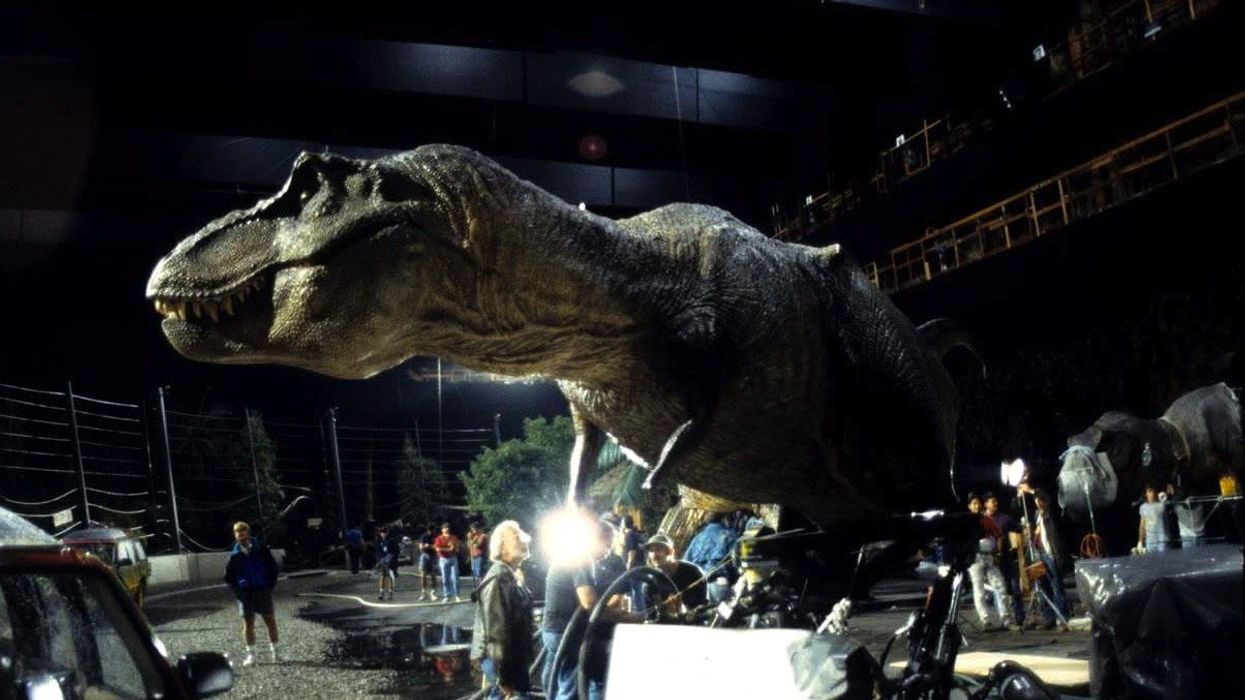How the CGI Dinosaurs of 'Jurassic Park' Changed the Cinematic World

Director Steven Spielberg is responsible for more than his fair share of cinematic innovations; Jaws proved that a movie could completely dominate at the box office, ushering in the era of the blockbuster. And though that animatronic, man-eating shark was a sight to behold back in 1975, it was nothing compared to what audiences would see coming from the Spielberg effects camp 18 years later with Jurassic Park, the film whose CGI dinosaurs managed to breathe life into an art form that wasn't quite catching on. This short Academy Originals video explains how Spielberg's digital dinos changed the way we make films.
It's kind of perfect that a film that tells the story about how beautiful life-giving technology can be until it falls into ill-prepared hands was made in part by using a life-giving technology. Spielberg wasn't the first to use CGI in a film; Steven Lisberger's Tron was the first to use it extensively in 1982, and even before that, shorts and features we making use of it in small, manageable doses. The Abyss, Indiana Jones and the Last Crusade, RoboCop 2, Terminator 2: Judgement Day -- all of these films used CGI to different effect, which means that, yes, the technology was there, but many filmmakers were still wary about using it on such a large-scale (as well as on something that needed to look real).
Spielberg was already working with puppeteering master Stan Winston, with plans to hire stop-motion guru Phil Tippett, to create the dinosaurs of Jurassic Park. Industrial Light and Magic was hired on to create motion blur for the stop-motion, but at the time, the ILM team, including Steve "Spaz" Williams, Stefen Fangmeier, Mark Dippé, and Dennis Muren, was experimenting with CGI. In fact, they'd already created effects for The Abyss and T2. However, Tippett was already hard at work running stop-motion tests for Spielberg's film, even going as far as putting together one of the most iconic scenes -- the first real introduction to the T-Rex:
In the early 90s, filmmakers and audiences may have not been "ready" for a CGI film, perhaps mainly because the effects at that time simply didn't sell the illusion of reality. When a film is made using CGI, a filmmaker generally doesn't want the audience to go, "Whoa! How did they do that!?" What they want is complete immersion to where the audience's mind doesn't even go into the realm of how what they're consuming was made. The only thing they're thinking about is the story and the beauty of the spectacle.
The rebellion and initiative of the ILM team as you'll see in the video below, changed the way we make and approach films, not just during production, but while we're tinkering inside our brains, wondering at the possibilities of our creativity. ILM broke down the cinematic doors technologically, but they also freed up the imaginations of generations of artists without truly intending to do so. CGI was the dinosaur DNA in the amber-preserved mosquito, and they were a group of John Hammonds -- the only difference was that they were prepared.
[via Academy Originals & Filmmaker IQ]











